The first semester of College
Hi, readers! We recently chatted with some of our Humanities and Social Science professors who teach and create our UNIV 190 course, officially called the Clarkson Seminar. We wanted you to know and share with you why UNIV 190 is so important and what impact it has on our students in the early days of their college education.
UNIV 190 professors shared some advice and tips on how to be successful in the first-semester course. These tips apply to UNIV 190, but you can apply these insights to any of your college courses.
Clarkson does a great job of preparing you for the career world. Much of what you will learn focuses on résume and career-driven skills for the workforce and your dream jobs. UNIV 190 is no different and in many ways helps prepare you for the classes to follow by allowing you to learn how to be a college student and how to critically think and solve problems.
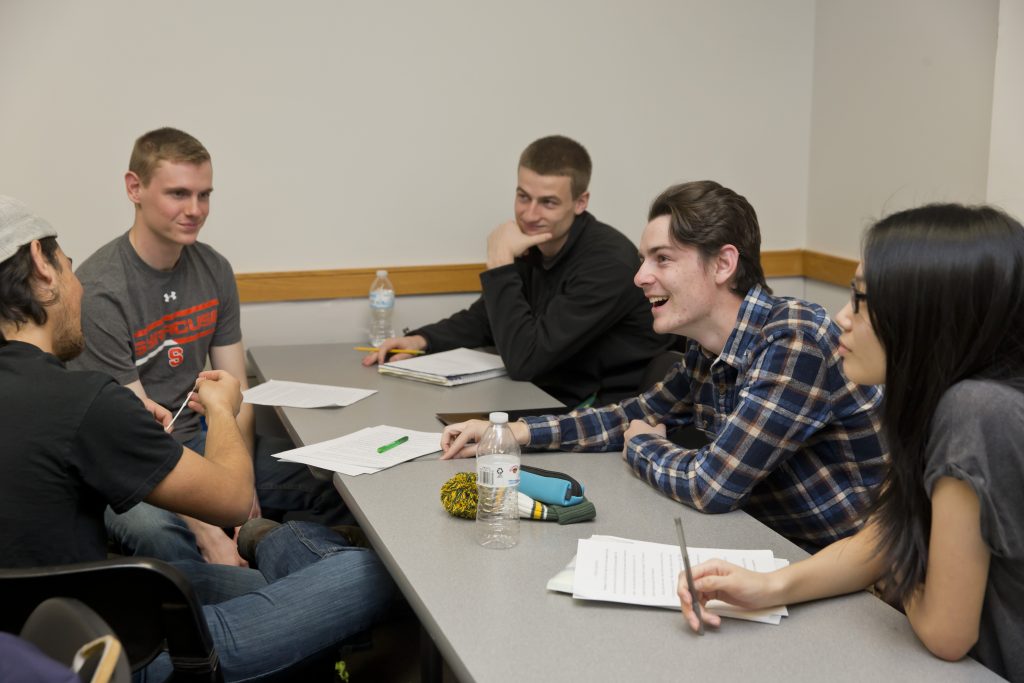
Participation is Key
One of the first things we heard from UNIV 190 faculty is that participation in any course is key! According to the faculty, The Clarkson Seminar is designed to be easy to participate in and help you learn the best ways to engage with your professors, classmates, and the topics.
Professor Rebecca Pelkey says, “My number one tip for success in UNIV 190 would be just come to class, every time, come to class. That’s where all the good stuff happens, in class.”
Be engaged in the course and the conversations. These topics and themes are meant to make us all think – including the professors. They want their students to be engaged and provide differing perspectives.
“This is not just another required English class – it won’t help you to think this way,” Professor Lisa Propst says. “Come prepared to think about things from the perspective of ‘how can I learn and what will today be like?’ Each class will be different and we want students to stay engaged in discussions and materials.”
One of the common top pieces of advice was to ask questions and don’t be afraid to bring things up on your own.
Professor JoAnn Rogers suggests, “If you find a connection between what we are learning, reading, or discussing in class please feel free to bring it up in the discussion or to us. It helps us understand what you are thinking and know that you are engaging in the course- we just love this!!”
“Asking questions demonstrates your seriousness, it shows that you’re committed to the course, and that is one of the marks of a good student,” adds Prof. Propst.
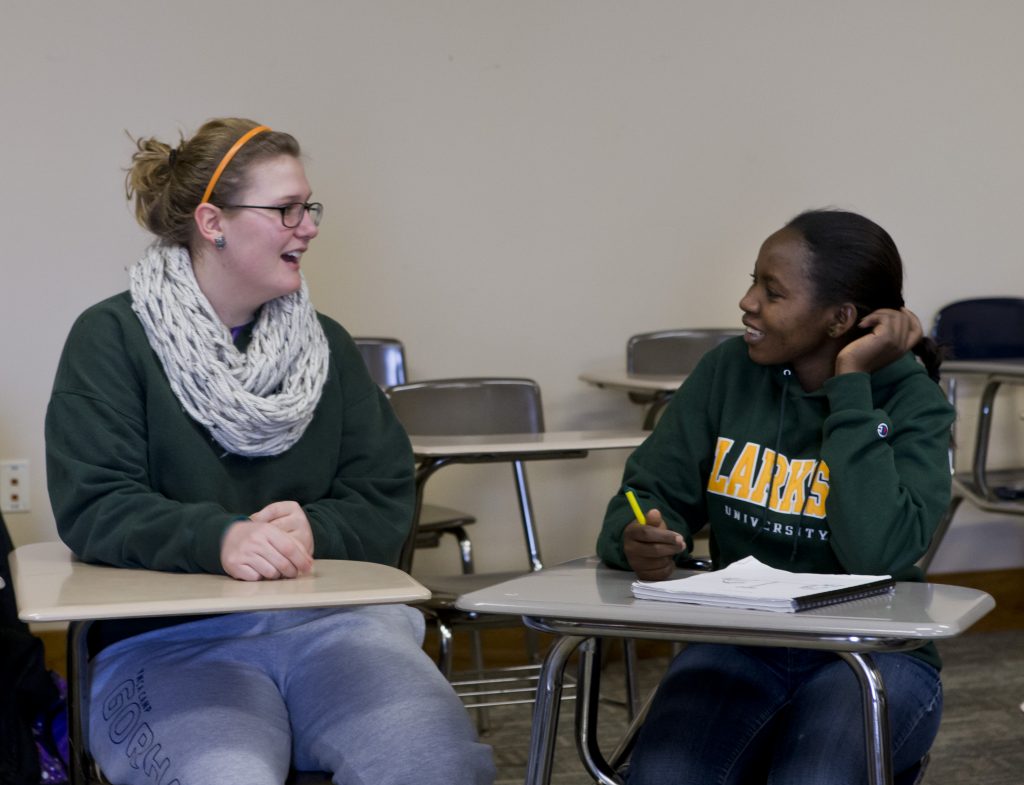
Time Management
Each professor we spoke with emphasized the importance of learning time management skills, because these skills are a necessity for the rest of your life. If you need a little help learning what skills and tricks work best for you, let them know. They might be able to share some of their own personal favorites or direct you to seek out our student services.
Prof. Rogers says, “Get yourself a planner, write your stuff down, block in study times, block in reading time, block in break times, and along with this make sure to schedule downtime. Eating properly, sleeping properly, taking time for yourself. Not video game playing, not running around, but just time to relax and recuperate, and also don’t study in large chunks, do small chunks… In fact, time management is the biggest key to being successful as a student.”
Not only is time management really important, so is reading – and setting aside the appropriate amount of time to complete your reading assignments.
“It helps you a lot when you are able to keep up with readings and stay on top of your assignments,” says Professor Matt Manierre. “We know you have a lot going on in your first semester here at Clarkson. We get it but that’s why when we say an estimated time it might take you to complete an assignment, you should plan for that amount – because most likely that’s how long it took us to do it!”
Professor Alastair Kocho-Williams adds “don’t let things slide, don’t think ‘Oh it doesn’t matter, the deadline is three weeks away, I’ll get to it.’ Have a plan!”
Not only will this help you with your classwork, but it’s also not bad advice for life!
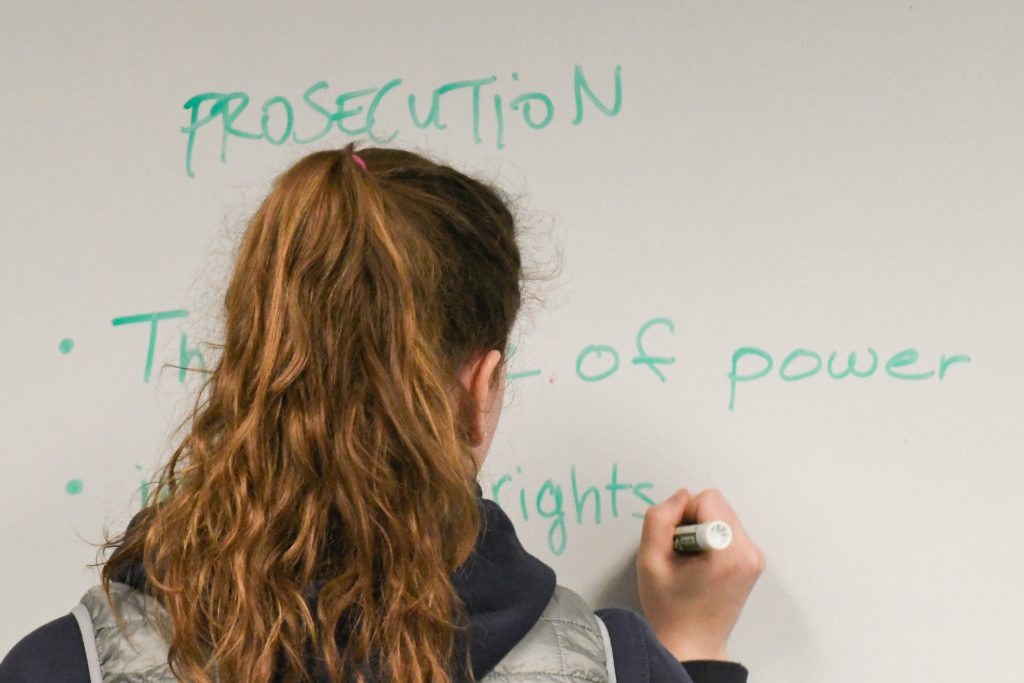
Learn how you work best!
This one might seem odd but not only is planning out your time important but understanding how you work, what your flow is, and what helps you be productive is also key to success. This one takes a while and will likely change along the way.
Look for the times you are most productive, what location, what background music, or what friend group or study buddy helps you be your most productive. Find these things and start to implement them. Not only does learning your style help you overall, but it will also help you when you’re struggling with tasks.
It’s always helpful to know your flow and style. It helps you to prevent overdoing it and helps manage distractions.
Prof. Manierre says one of his favorite ways to work with his flow and productivity style is to split it up, mixing up tasks that are harder or take a longer time with those that are short and easy to cross off the list. He also gives some welcome and realistic advice on those daunting reading tasks.
“Keep up on the reading as best as you can, but also appreciate that reading in college is not always reading word for word,” says Prof. Manierre. “Appreciate that you need to be able to talk about something. That doesn’t mean you need to memorize everything, you just need to be able to have a conversation about it.”
Learn and work with your own classroom style. If you’re the one that asks a lot of the class questions – embrace it! If you’re nervous about bringing up topics of discussion then make sure to utilize the class discussion boards or essay prompts. You can also use office hours or stop and talk to professors in the hallway to show you’re thinking about the material!
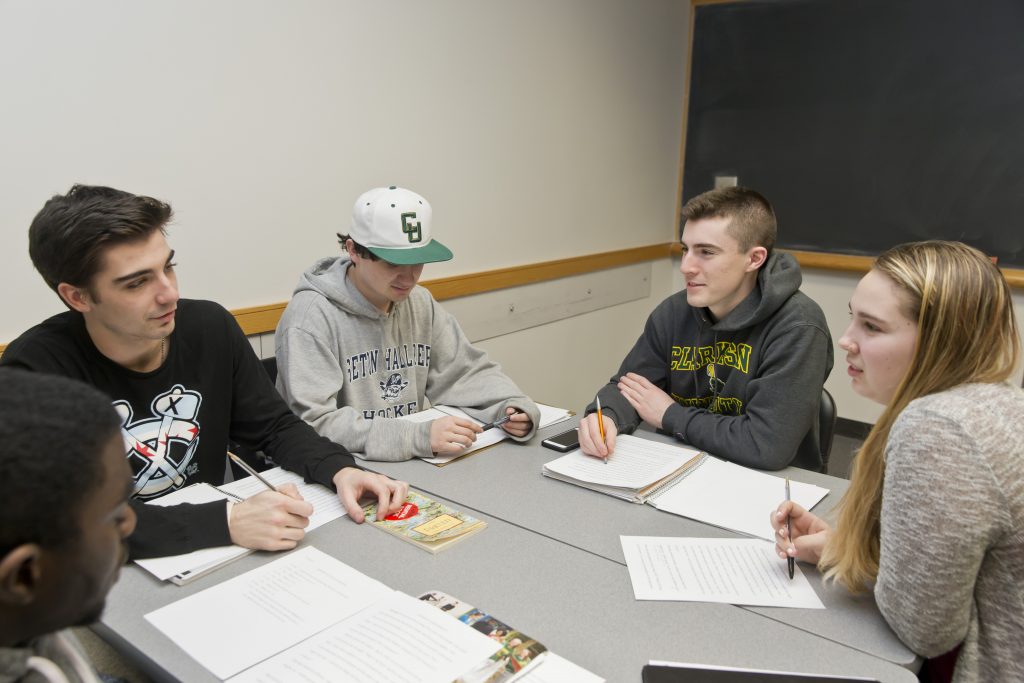
Read & Understand your Course Syllabi
According to the faculty (and despite any myths you might have heard), the syllabus is your best friend when it comes to learning to be successful in a course. It is not just something you see on the first day of class and forget about! It is a working, living document that should be used and referenced all throughout the class.
Professor Alex Cohen advises, “Read it and understand the syllabus. Everything that you need to know about the class is there. All of the deadlines, the rules, if there are attendance policies, what makes good participation, how your feedback is going to be received. Understanding that is basically your key to getting through and succeeding in any class that you take.”
Incorporating the syllabus and referencing throughout the semester are all easy things to reference and get credit for on all assignments. It helps you plan out your assignments and goes right back to that time management skill.
Communicate with your professors (& ask for help when needed)
Professor Camille Frazier says, “Talk to us. We love having conversations even if we have different perspectives. It’s exciting to share and talk with our students about the course or class connections.”
“Communicate with us. You will find that most of your UNIV 190 professors will be really open to communicating with you and helping you,” adds Prof. Kocho-Williams. “We are here in this department and teaching this course because we love it and like to have these types of interactions with students.”
Aside from friendly conversation, it’s also important to know when it’s time to ask for help. Professors and staff at the University are here for you and want you to do your best. Even if it’s not for their specific class, ask them for help.
“I know we can seem a little daunting and a little scary, and there is this sort of barrier to moving forward but we’re all human beings. We’ve all been where students have been, we know what this is like. Yes, it was a little while ago for some of us, some longer than others, but we get it and we work with students all the time, this is our profession, this is what we do. We understand that things can get difficult, things can get out of control, we know how to help you get things back on track,” says Prof. Kocho-Williams.
Don’t forget to seek help from other departments and people too. If you are struggling with writing, seek help through the Writing Center. If you need help with a resume for an upcoming Career Fair, schedule an appointment with the Career Center. Sometimes you might just need a little guidance on getting to the right place – so just ask!
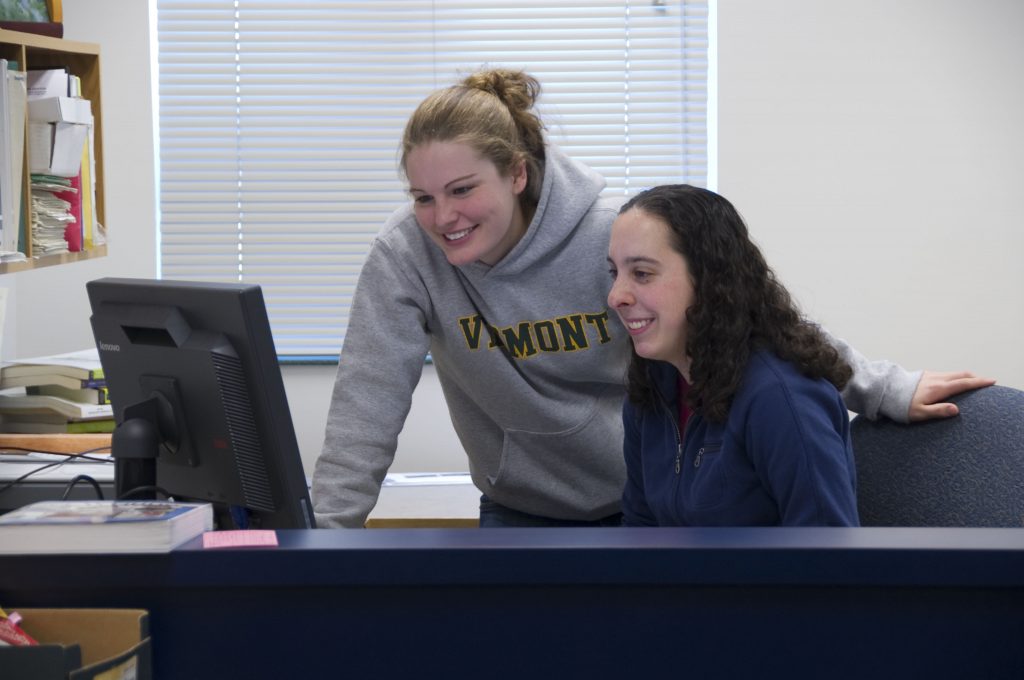
Be open-minded, have fun, and don’t forget to relax!
According to many of the faculty we talked to, being open-minded is your biggest advantage in college.
Prof. Kocho-Williams says, “Be open-minded. Approach new things, seek out new opportunities. This is the time. It’s a unique time in life, the beginning of university to find out new things about the world, meet new people, think about what you want to do, where you want to go, and how are you going to get there?”
And according to Prof. Cohen, it’s important to remember the bigger picture.
He says, “Have fun and relax. The class is not the end of the world. It is one grade. And, certainly, everybody wants to do well. But we are not our grades. Our grades are a way of evaluating how we have done in a set of assignments but they are not an evaluation of worth. And what I see students sometimes do is prioritize the grade over their own experience.”
Keep in mind that a student is someone who learns from school and life, so don’t be afraid to join clubs and organizations and get involved in outside activities, but still keep your eye on the prize.
Prof. Rogers says, “Find at least one outside activity or club, but always remember no matter what, your education is most important. So, whether you’re rushing a fraternity or sorority, or you’re on a sports or SPEED team, you need to make sure that your academics come first if you want to be a successful student.”
We hope you find these tips helpful as you begin to navigate your college experience very soon. Rest assured that here at Clarkson, everyone wants you to be successful, not just in your first-semester UNIV 190 class, but your entire time as part of the Clarkson family. Let’s Go Tech!

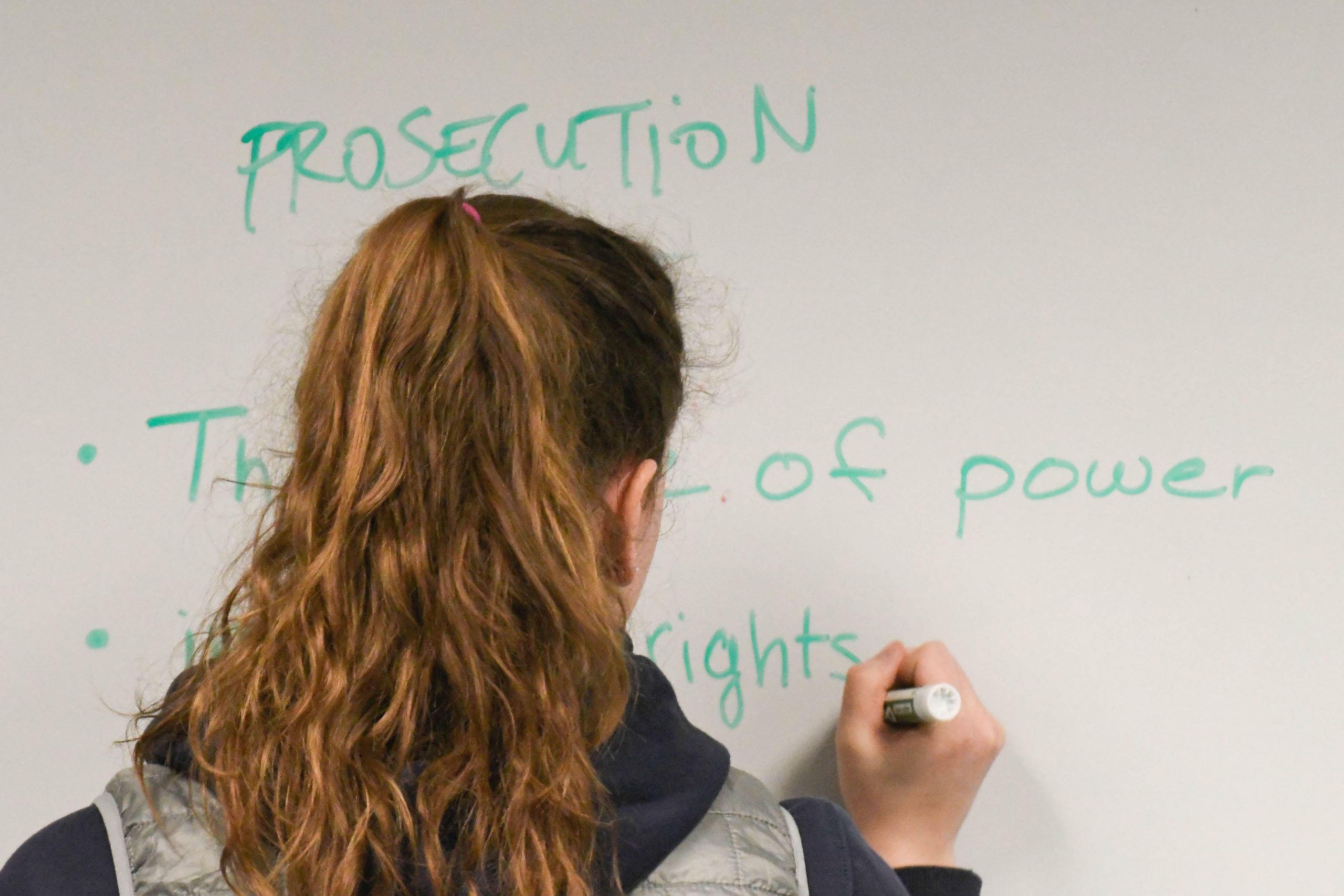
Thank you so much for all of this wonderful advice. I look forward to participating in this class and working with my peers!